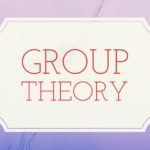Isomorphism Criterion of Semidirect Product of Groups

Problem 113
Let $A$, $B$ be groups. Let $\phi:B \to \Aut(A)$ be a group homomorphism.
The semidirect product $A \rtimes_{\phi} B$ with respect to $\phi$ is a group whose underlying set is $A \times B$ with group operation
\[(a_1, b_1)\cdot (a_2, b_2)=(a_1\phi(b_1)(a_2), b_1b_2),\]
where $a_i \in A, b_i \in B$ for $i=1, 2$.
Let $f: A \to A’$ and $g:B \to B’$ be group isomorphisms. Define $\phi’: B’\to \Aut(A’)$ by sending $b’ \in B’$ to $f\circ \phi(g^{-1}(b’))\circ f^{-1}$.
\[\require{AMScd}
\begin{CD}
B @>{\phi}>> \Aut(A)\\
@A{g^{-1}}AA @VV{\sigma_f}V \\
B’ @>{\phi’}>> \Aut(A’)
\end{CD}\]
Here $\sigma_f:\Aut(A) \to \Aut(A’)$ is defined by $ \alpha \in \Aut(A) \mapsto f\alpha f^{-1}\in \Aut(A’)$.
Then show that
\[A \rtimes_{\phi} B \cong A’ \rtimes_{\phi’} B’.\]
Sponsored Links
Proof.
Define $\Psi: A \rtimes_{\phi} B \to A’ \rtimes_{\phi’} B’$ by
\[(a,b) \mapsto (f(a), g(b))\]
for $(a,b)\in A \rtimes_{\phi} B$.
We show that this is a group isomorphism. Since $f, g$ are group isomorphisms, it suffices to show that $\Psi$ is a group homomorphism.
Let $(a_1,b_1), (a_2, b_2) \in A \rtimes_{\phi} B$. We compute the product in $A\rtimes_{\phi} B$ is
\[(a_1,b_1)\cdot(a_2, b_2)=(a_1\phi(b_1)(a_2), b_1 b_2).\]
Thus we have
\begin{align*}
\Psi\left( (a_1,b_1)\cdot(a_2, b_2) \right) &= \Psi\left( (a_1\phi(b_1)(a_2), b_1 b_2) \right)\\
&=\bigg(f \big(a_1\phi(b_1)(a_2) \big), g(b_1 b_2) \bigg). \tag{*}
\end{align*}
On the other hand, we have
\begin{align*}
\Psi \left( (a_1, b_1) \right) \cdot \Psi \left( (a_2, b_2) \right) &=
(f(a_1), g(b_1)) \cdot (f(a_2), g(b_2)).\\
&=\bigg(f(a_1) \phi’\big(g(b_1))(f(a_2) \big), g(b_1)g(b_2) \bigg) \tag{**}
\end{align*}
Here we used group operation in $A’\rtimes_{\phi’} B’$ in the second equality.
Now by the definition of $\phi’$ we have
\[\phi'(g(b_1))=f\circ \phi(g^{-1}(g(b_1))) \circ f^{-1}=f\circ \phi(b_1) \circ f^{-1}.\]
Thus we have
\[\phi'(g(b_1))(f(a_2))=f\circ \phi(b_1) a_2.\]
Hence we have
\begin{align*}
(**) &= \bigg(f(a_1)f \big(\phi(b_1)a_2 \big), g(b_1)g(b_2) \bigg)\\
&=\bigg(f \big(a_1\phi(b_1)(a_2) \big), g(b_1 b_2)\bigg),
\end{align*}
where the last equality follows since $f, g$ are group homomorphisms.
Comparing this with (*), we see that
\[\Psi\left( (a_1,b_1)\cdot(a_2, b_2) \right)=\Psi \left( (a_1, b_1) \right) \cdot \Psi \left( (a_2, b_2) \right) \]
and thus $\Psi$ is a group homomorphism, hence it is a group isomorphism.
Corollary
In particular, taking $A=A’$ and $B=B’$, we have the following corollary.
Let $A \rtimes_{\phi} B$ be the semidirect product of groups $A$ and $B$ with respect to a homomorphism $\phi: B \to \Aut(A)$.
If $\phi’ :B \to \Aut(A)$ is defined by the following diagram, then we have
\[A \rtimes_{\phi} \cong A \rtimes_{\phi’} B.\]
\[\require{AMScd}
\begin{CD}
B @>{\phi}>> \Aut(A)\\
@A{g^{-1}}AA @VV{\sigma_f}V \\
B @>{\phi’}>> \Aut(A)
\end{CD}\]
Application
Determine all isomorphism classes of semidirect product groups $(C_2 \times C_2) \rtimes C_3$, where $C_i$ denotes a cyclic group of order $i$.
Proof.
We first determine all homomorphism $\phi: C_3 \to \Aut(C_2 \times C_2)$.
Note that $\Aut(C_2 \times C_2)\cong S_3$. ($C_2 \times C_2$ has three degree $2$ elements and an automorphism permutes these elements.)
Let $g$ be a generator of $C_3$. Then since $g$ is of order $3$, the image $\phi(g)$ is one of $1$, $(123)$, $(132)$.
Thus there are three homomorphism from $C_3 \to \Aut(C_2 \times C_2)$ defined by
\[\phi_0(g)=1, \phi_1(g)=(123), \phi_2(g)=(132).\]
Since $\phi_0$ is a trivial homomorphism, the semidirect product is actually a direct product. Thus
\[(C_2\times C_2)\rtimes_{\phi_0} C_3 =(C_2\times C_2)\times C_3,\]
which is an abelian group.
For $\phi_1$ and $\phi_2$, we obtain nonabelian groups
\[(C_2\times C_2)\rtimes_{\phi_1} C_3 \text{ and } (C_2\times C_2)\rtimes_{\phi_2} C_3 .\]
We claim that these two groups are isomorphic.
Note that we have
\[\phi_1(x)=\tau \phi_2 (x) \tau^{-1}\]
for all $x \in C_3$, where $\tau=(23)\in S_3$.
Thus the claim follows from Corollary.
(In the notations in Corollary, $A=C_2 \times C_2$, $B=C_3$, $f\in \Aut(A)\cong S_3$ is $(23)$ and $g:B\to B$ is the identity.)
Therefore we have two isomorphism classes for $(C_2 \times C_2) \rtimes C_3$, one is abelian, the other is nonabelian.
(In fact, the nonabelian group is isomorphic to $A_4$.)
 Add to solve later
Add to solve later
Sponsored Links













